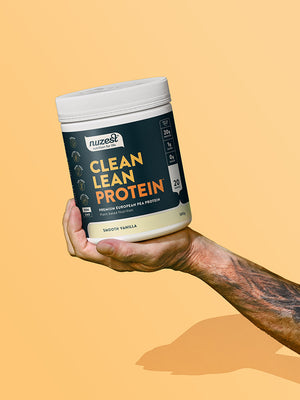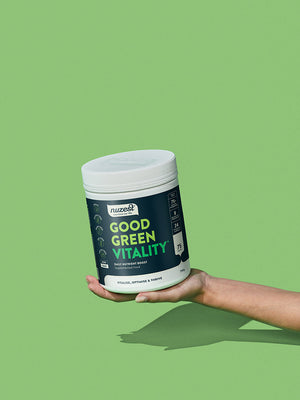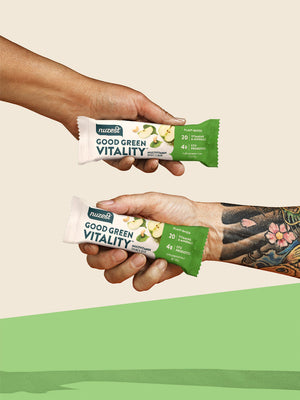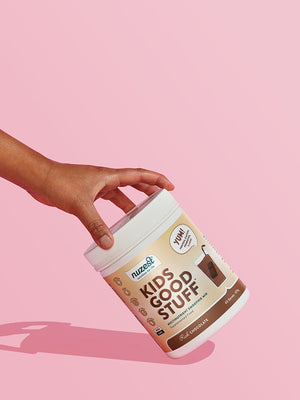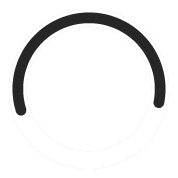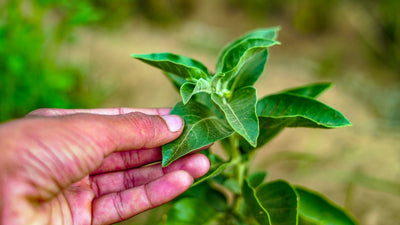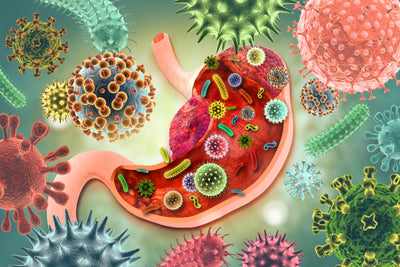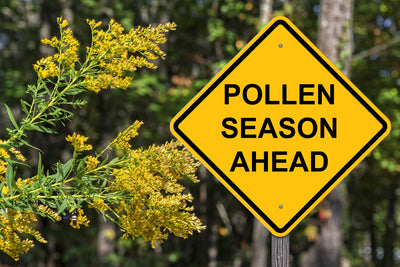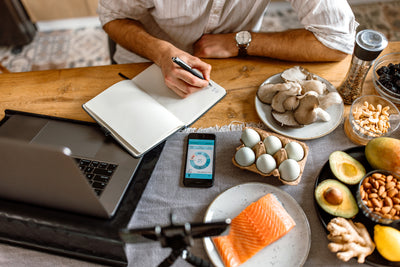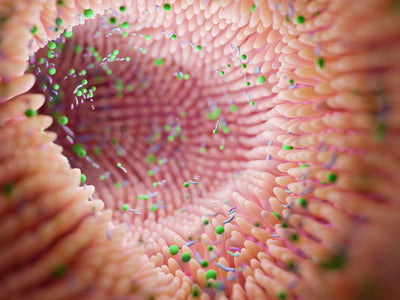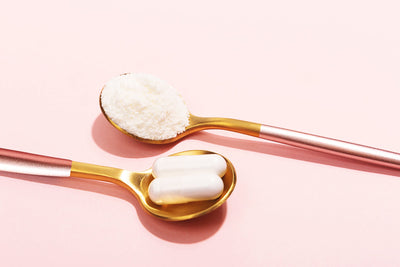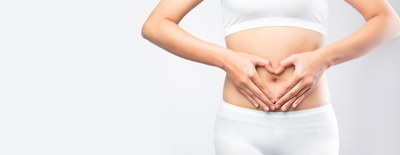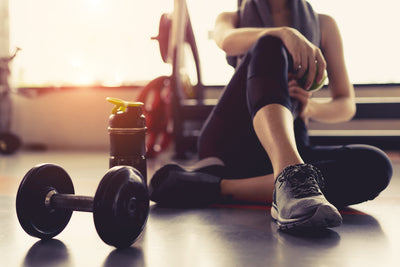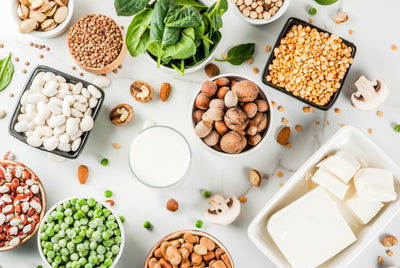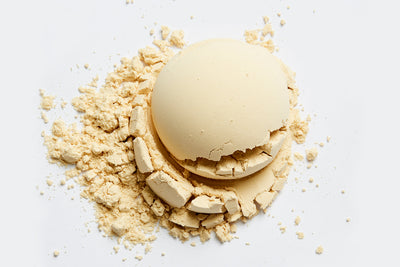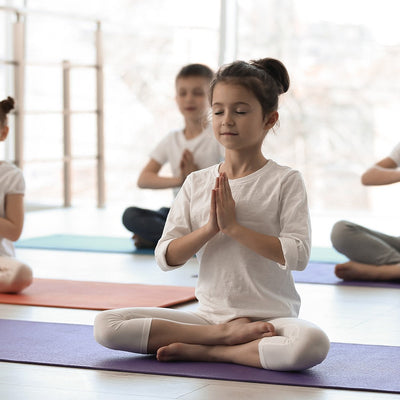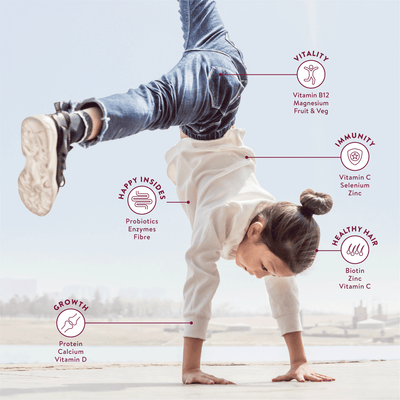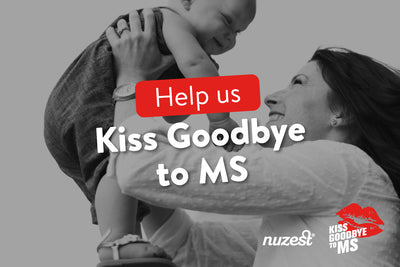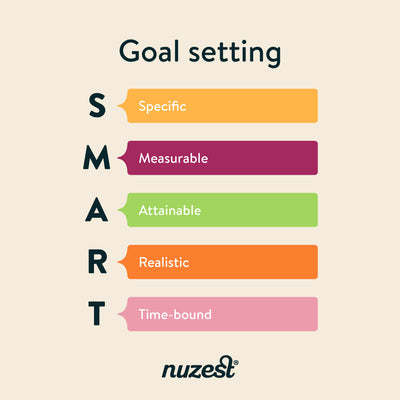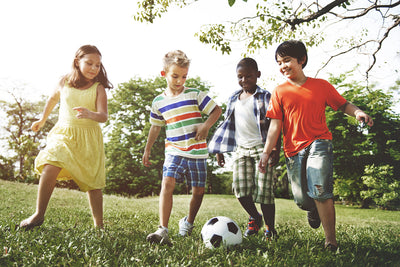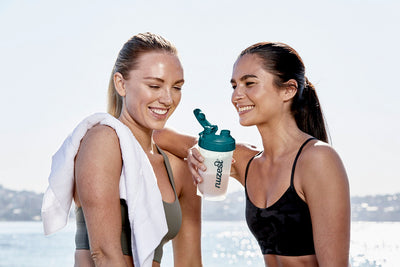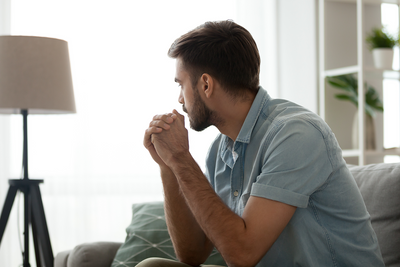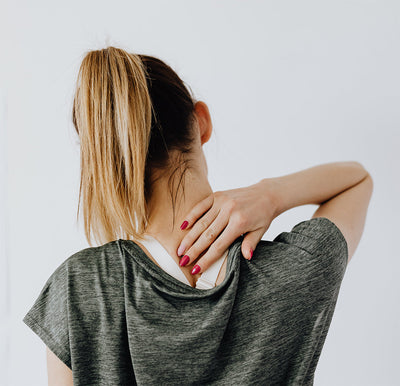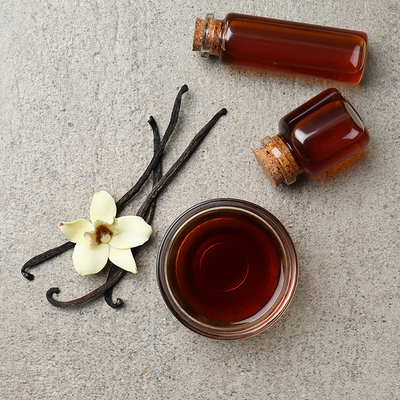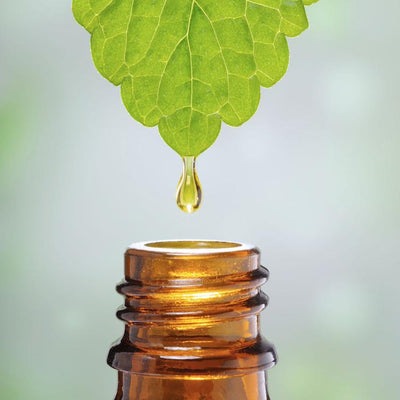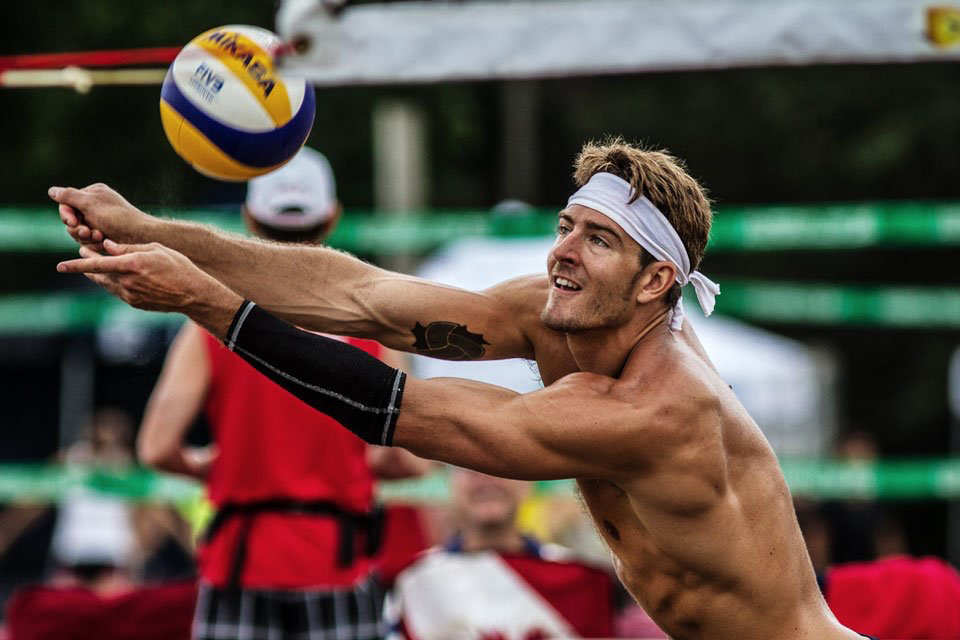
9 min read
Interview with retired Olympian Martin Reader: Life After Professional Sport
Posted By
Caitlin Turner
Prior to the global pandemic closing office spaces across Australia, Nuzest HQ were fortunate enough to have had 2012 London Olympian, Martin Reader, attend their office to present a keynote speech on mastering personal performance. They were so inspired by his story of hardship, struggle, challenge and success throughout his career as an athlete, that they asked if he would feature in our blog to talk about his experiences transitioning out of professional sport.
Martin had an incredibly successful career as a professional volleyball player, representing Canada in Beach Volleyball at the 2012 London Olympics. Martin announced his retirement from professional sport shortly after the 2012 Olympic games and moved to Sydney, Australia – a place he now calls home. Today, Martin works as the Sport Operation Manager at Volleyball NSW, coaches volleyball at Sydney Grammar School, is a performance and cultures consultant around Sydney and acts as a mentor for athletes around the world through his @OFFBALLathlete platform which provides personal and professional development opportunities for athletes in mind, body and life. Should you wish to learn more about Martin, you can find him on his personal Instagram @martinjreader.
How did you come about your decision to retire from professional sport?
It was not my intention to retire as early as I did, however, after an incredibly challenging and cutthroat experience qualifying for the 2012 Olympics in London, I realized my life dream of becoming an Olympian was complete. I still had some great years ahead of me, but I felt a calling to take my effort, focus, passion and work ethic into building a life outside of sport.
How would you describe your transition out of professional sport?
It was really hard to take the leap of faith and transition myself beyond sport. It took me 4 months to decide fully but I am happy to say it happened on my own terms. I left after my greatest season and a lifetime achievement, so I had a lot of personal momentum and had the confidence to apply myself in "real life". The biggest challenge was learning how to actually work in a non-professional sporting world. Effort, intensity and enduring pain were my currencies as an athlete, but it took me a while to realise strengths that brought immediate value in a working capacity. Second to that I had a lot of ideas but not a lot of expertise on how to execute them. Thank goodness I wasn't afraid of a good challenge because it took some time for me to find my niche in health and fitness. Developing and leading a culture similar to a competitive team environment was key to my transition and once that was thriving, I felt right at home.
What impact did your transition out of professional sport have on your mental and emotional health?
I was always very conscious of being more than my identity and achievements within sport. I always had other pursuits and interests outside of the court and was connected to a purpose greater than myself, so I didn't have a crisis or a period where I was lost. That said, what I valued and had valued for a decade plus as an elite sportsman wasn't necessarily what other people valued. It took some time to ease my regimented life of sport specific training and competing, but physical fitness and healthy eating remained my anchors. I am so grateful to have had such loving and supportive parents who were there for me unconditionally, that was a huge help.
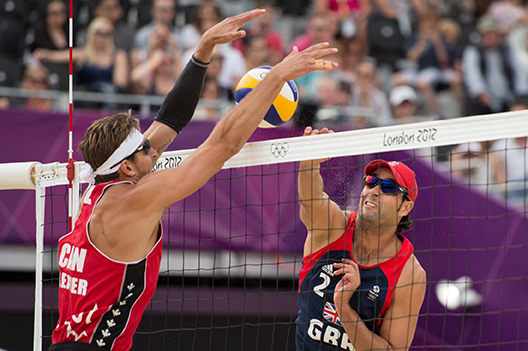
Have your attitudes and behaviours towards health changed since transitioning out of professional sport?
They have absolutely changed! I went from the pinnacle of performance to becoming a fitness business owner and trainer to now coaching people in more mental performance and stress reduction. I always thought the harder you went the better you would be but over time I have naturally moved more towards more functional training, breath-work, ice baths, recovery practices and playful outdoor activities. I have gone from the idea that performance is about pushing yourself to the outer limits at all costs (health, injury, balance) and have evolved my philosophy to believe that health and the balance of mind and body actually live at the centre of personal performance.
How do you like to stay healthy?
I live a very free life when it comes to being healthy. My fiancée and I eat a diet rich in vegetables, greens, whole foods and we do our best to source free range or pasture raised meats from local butchers. We go for morning beach walks almost every day, do yoga together (my partner @juliahamer is a yoga teacher at Virgin Active), workout together and simply do our best to be active. More specifically, as an individual, I mentor and train with a young talented athlete, so he keeps me motivated as I get to share my strength and conditioning knowledge and challenge him to be better by challenging myself. We train 2 or 3 days a week focusing on mobility, athletic body building, core strength, hill sprints and sport simulated conditioning. Lastly and most importantly, my breath practice lies at the foundation of my health. I have learnt to better manage my relationship with stress, become more present in my life and simply live with more gratitude on a daily basis by being more connected to myself, my partner and my purpose.
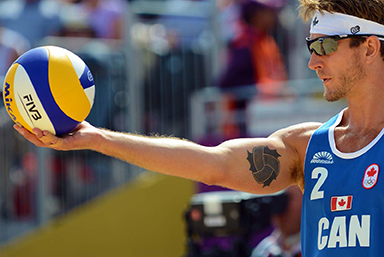
What advice would you give to someone transitioning out of professional sport?
You have been conditioned to work hard for something your whole life. Embrace that skill (because it is) but move into the space of working smarter not harder (which is likely where you will default). Secondly, what you learned competing and pushing yourself to the limit is a competitive advantage in every other field. You may think you are entering "real life" behind other people who went right into school or the work force but your experience pushing at the tip of the spear of sport is actually something businesses and leaders are seeking. Believe that what you have gone through has equipped you with self-awareness and leadership skills other people haven't harnessed, so use that to your advantage.
Performance in any capacity comes down to stress management under pressure and you know how to do that better than most. Be humble enough to start from the beginning but be confident enough to know that your work ethic, sportsmanship and ability to contribute to a team will get you noticed and into rooms other people would kill for. But know that getting into the room means nothing, it is then on you to prove yourself and show your value. Take it for what it is worth - your time as an elite athlete is a competitive advantage but it is up to you to learn how to move past your career in sport while bringing your hard-earned lessons with you on your new journey.
Related news
min read
An Introduction to Gut Health & Nutrition – 5 Must See Articles
Gut health significantly affects overall wellbeing, influencing brain function, immunity, and metabolism. A balanced gut microbiota, influenced by diet and environment, can potentially enhance health, aid digestion, and reduce allergies. The roles of probiotics and prebiotics in gut health are also discussed.
min read
Probiotics vs. Prebiotics
Unleash gut health with probiotics and prebiotics! Strengthen digestion, immunity, and overall well-being. Try Nuzest's Good Green Vitality for convenient support with 8 billion CFU of probiotics. Take charge now!
min read
The Link Between Gut Health & Allergies - Plus 5 Top Tips to Help
Discover the link between gut health and allergies, and how the gut microbiome influences the body's immune response to allergens. Learn how adopting a balanced diet with prebiotics and probiotics can support gut health, reducing the risk of allergic reactions. Explore solutions for allergy relief and fostering a healthier gut with Nuzest’s multi-nutrient formula, Good Green Vitality.
min read
The Great Diet Debate: Unravelling the Tapestry of Popular Eating Plans
Exploring popular diets such as the Mediterranean, Ketogenic, Plant-Based, Paleo, and Intermittent Fasting, this overview highlights their principles, benefits, and considerations. It emphasizes the importance of finding a dietary pattern that aligns with individual health goals and preferences, while suggesting the potential benefits of incorporating a multi-nutrient supplement for overall health.
min read
The Gut Connection: How to Improve Your Digestion and Gut Health in 6 Steps
Discover the significance of gut health and its impact on digestion and overall well-being in this insightful article. Learn six practical steps, including maintaining a balanced diet, staying hydrated, managing stress, and using antibiotics wisely, to promote a healthy gut and enhance vitality.
min read
Does Gut Health Affect Your Immune System? | Do These 6 Things
The gut microbiome, which consists of trillions of bacteria in our digestive tract, plays a crucial role in supporting our immune system and overall health. Consuming probiotics and prebiotics, staying hydrated, managing stress, limiting processed foods, and engaging in outdoor activity and exercise are effective strategies to promote a healthy gut and enhance immunity.
min read
What is Collagen? Types, Sources and Benefits of Supplementation
Collagen is essential for joints, bones, muscles, ligaments, tendons, cartilage, skin, hair and nails.2 It is one of the primary structural proteins of connective tissue and plays a crucial role in the body by cushioning, strengthening, hydrating, binding, and connecting tissues together.3 Connective tissues are able to provide physical and mechanical support through the collagen, elastic and reticular fibres
min read
Kids Good Stuff for Skin Health
How can you ensure your kids have healthy skin? A part from the obvious, what nutrients can we provide our kids to ensure their skin stays in tip top shape?
min read
Maximising Mood In Your Kids
Almost 1 in 7 children and adults aged 4-17 had been diagnosed with a mental health disorder. Amy Butler discusses good nutrition and lifestyle modifications, that can help to reduce the risk.
min read
Long-Lasting Energy For Kids
Children and adolescents are going through massive periods of growth and development. To keep up with the demands of school, extracurricular activities, sports and friendships, kids often need a bit of an energy boost. In our latest blog we break down some specific nutrients for energy, to help support growing kids, and the best places to source them from.
min read
Setting Health Goals & Staying Motivated in 2021
Use this tried and tested goal strategy to set smaller, specific goals to avoid the overwhelm of unrealistic and vague health objectives.







